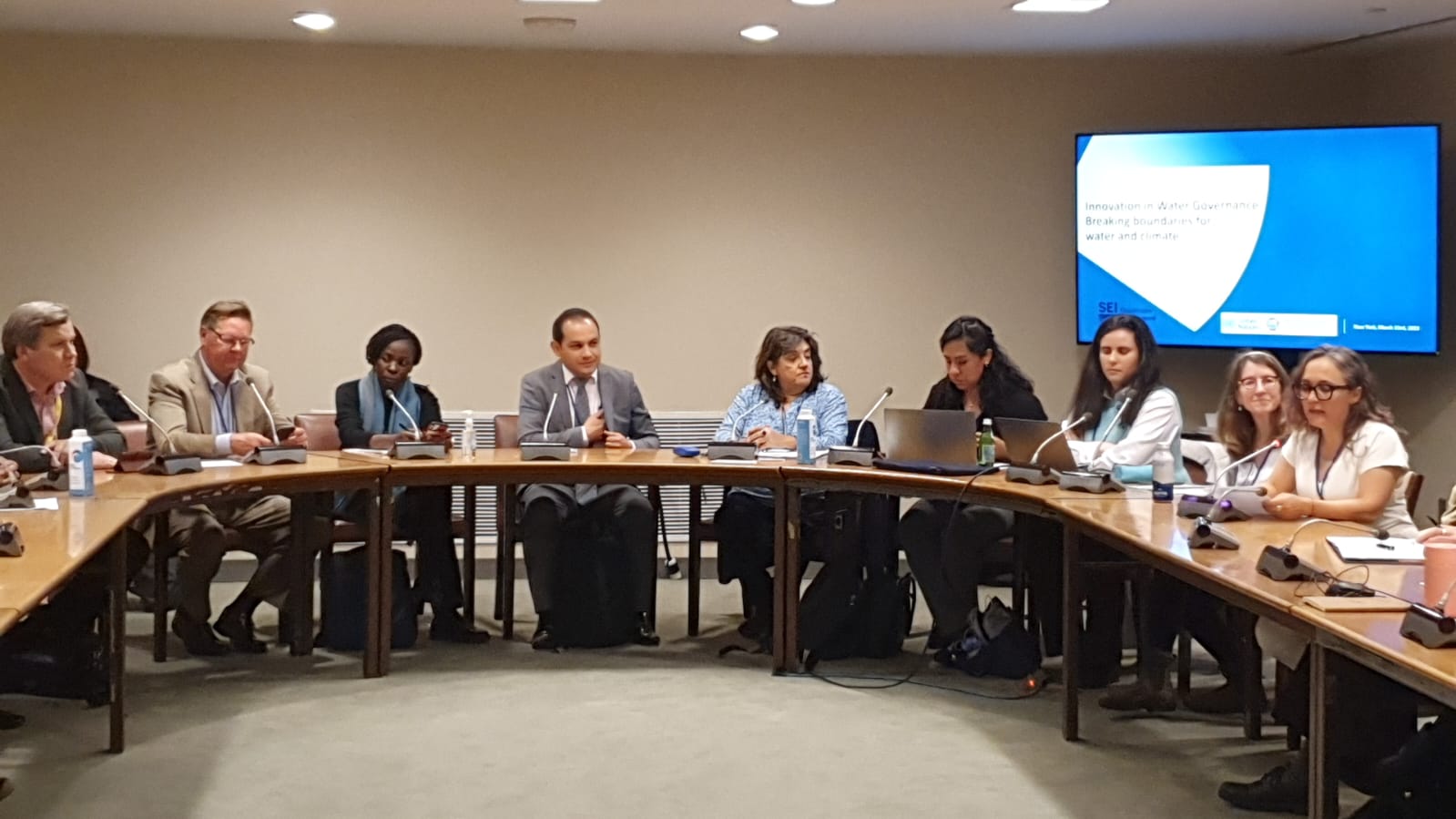Participation of ECLAC in the side event organized by the Stockholm Environment Institute (SEI) in New York
Work area(s)
Topic(s)
ECLAC participated in the side event “Innovation in Water Governance: Breaking boundaries for water and climate”, organized by the Stockholm Environment Institute.

On Thursday March 23, 2023, the side event "Innovation in Water Governance: Breaking boundaries for water and climate" was held. This event was organized on the second day of the United Nations Water Conference in New York. Its objective was to display the experiences and best practices to close the main gaps in sustainable and equitable access to water, considering inclusive participatory approaches, climate-oriented actions, macroeconomic impacts around water and the consideration of ecosystems.
To begin with, Dr. Marisa Escobar, Water Program Director at the Stockholm Environment Institute, shared the opening remarks. She was followed by the first panel, which sought actions to foster cooperation and collaboration. It was highlighted that sustainable water management must go beyond the basin, with participatory processes based not only in one place, but also considering intersectoral and macroeconomic implications and decision-making outside the basin. The panel included the participation of Dr. Emmanuel Rukundo, Director General at Rwanda Water Resources Board, Ms. Joy Busolo, Senior Water Resources Management Specialist at the World Bank and Mr. Thanapon Piman, Senior Research Fellow at the Stockholm Environment Institute.
Then, the second panel took place, where actions were discussed to maintain the ecosystem's health and implement the management approach from source to sea. Panelists commented on how ecosystems should be considered throughout water planning and management, incorporating ecosystem needs and processes. The second panel included Mr. Grant Davis, General Manager at California’s Sonoma Water Utility, United States, Dr. Johan Kling, Head of Department for Water Resources Management at the Swedish Agency for Marine and Water Management and Dr. David Lymer, Deputy Head of Unit, Senior Water, Sanitation and Ocean Policy Specialist at Swedish International Development Cooperation Agency.
Finally, in the third panel, which sought to find actions to increase knowledge exchange and inclusive decision-making, the panelists presented different efforts being promoted by the participating institutions. The panel included the participation of Mr. Fabián Caicedo, Director of Integrated Water Resources Management at Colombia’s Ministry of the Environment and Sustainable Development, Ms. Marissa Castro, Director General of Limits, Borders and International Transboundary Waters at Bolivia’s Ministry of Foreign Affairs and Mrs. Rayén Quiroga, Head of the Water and Energy Unit of the Natural Resources Division of ECLAC. Mrs. Quiroga presented the Regional Water Action Agenda, the primary outcome of the Regional Water Dialogues, in February 2023. The agenda aligns and reinforces various previous treaties, agreements and strategies on water management and constitutes a call to action to mobilize all the political, technical and financial resources of the region. In particular, the agenda highlights the areas for prioritization and the efforts needed to accelerate the achievement of SDG 6.
The event ended with closing remarks by representatives of the Stockholm Environment Institute and the Swedish International Development Cooperation Agency.